Now the Spirit explicitly says that in the later times some will desert the faith and occupy themselves with deceiving spirits and demonic teachings (1 Timothy 4:1)
by Brian Shilhavy
Editor, Health Impact News
In my recently published article, False Prophets Now Lead Their Deceived Followers as America Stands at the Brink of Collapse, I responded to a great comment in the comments section, where I wrote:
We have only one Head, one Pastor, one Bishop, one Priest, and one Lord, and his name is Jesus Christ. All others are impostors and false prophets.
This statement seemed to confuse and bother some readers, with some trying to post contradictory comments and claiming that this statement that I made needed to be “clarified.”
So that is what this article is, a clarification to the statement that all the leaders who carry titles attached to their name to emphasize their alleged authority in Corporate Christianity, are impostors and false prophets.
Here is the clarification:
All men or women who put a title of authority before their name, such as pastor, priest, bishop, elder, etc., are leaders in the prophesied “Synagogues of Satan” spoken about in the book of Revelation, the last book in the Bible, and they are the ones referred to by Paul in his letter to Timothy where he wrote:
Now the Spirit explicitly says that in the later times some will desert the faith and occupy themselves with deceiving spirits and demonic teachings, influenced by the hypocrisy of liars whose consciences are seared. (1 Timothy 4:1-2)
Does that clarify things for you?
The evidence that the “latter times” that Paul wrote about where this would happen, is happening now, today in the 21st Century, is presented in a photographic collage that is at the top of this article, where these religious Christian leaders participated in the Satanic activities of the COVID deception, put on Satanic masks to show their allegiance to Satan, closed down their churches at the request of the Satanic State, and then only opened them again after the COVID “vaccines” were approved so that their churches could become “vaccine clinics” and receive government funds from their local county health departments, to help make up for the loss of income from contributions from their members who all stayed home while the churches were closed.
The Demonic Idolatrous Teaching of Corporate Christianity
So how did this happen? How did the vast majority of Christian leaders so easily submit to the Satanic authorities and encourage, or in some cases require, that the members of their organizations get the COVID bioweapon shots, claiming that it was an “act of faith” to get injected, seemingly not realizing that this “faith” was a faith in Satan and the Satanic medical system, instead of a faith in God to keep them safe, which is idolatry?
The few Christian leaders who did resist, suffered consequences, such as having their church burned down, or even being arrested.
But they were, by far, the tiny minority voice resisting the Satanic COVID mandates including bioweapon injections.
I have written multiple times that COVID-19 did not corrupt the medical system, but that the corrupt medical system produced COVID-19.
Likewise, COVID-19 did not corrupt the Christian Churches, but the corrupt, Satanic Christian Churches were actually fertile fields to deceive and lead the masses astray to participate in the great COVID deception, and the resulting bioweapon injections.
The reason this happened so easily, is because the American Churches, and most Christian Churches around the world today, do not follow the teachings of the Ancient Scriptures, the Bible.
If you do not believe the Bible is true or accurate today, then you can stop reading right now, because the rest of what I am going to write will conclusively show that human leaders of authority among the believers of Christ are not only not found in the Bible among the First Century believers, but the opposite is actually taught.
Jesus Christ: The Head of the “Body of Christ”
The Principles for Leadership
Jesus Forbids the Use of Titles of Authority Among Believers
But you are not to be called ‘Rabbi,’ for you have only one Master and you are all brothers.
And do not call anyone on earth ‘father,’ for you have one Father, and he is in heaven.
Nor are you to be called ‘teacher,’ for you have one Teacher, the Christ.
The greatest among you will be your servant. For whoever exalts himself will be humbled, and whoever humbles himself will be exalted. (Matthew 23:8-12)
Jesus called them together and said, “You know that the rulers of the Gentiles lord it over them, and their high officials exercise authority over them.
Not so with you. Instead, whoever wants to become great among you must be your servant, and whoever wants to be first must be your slave– just as the Son of Man did not come to be served, but to serve, and to give his life as a ransom for many.” (Matthew 20:25-28)
Jesus Demonstrated Servant-Leadership
It was just before the Passover Feast. Jesus knew that the time had come for him to leave this world and go to the Father. Having loved his own who were in the world, he now showed them the full extent of his love.
The evening meal was being served, and the devil had already prompted Judas Iscariot, son of Simon, to betray Jesus. Jesus knew that the Father had put all things under his power, and that he had come from God and was returning to God; so he got up from the meal, took off his outer clothing, and wrapped a towel around his waist.
After that, he poured water into a basin and began to wash his disciples’ feet, drying them with the towel that was wrapped around him.
He came to Simon Peter, who said to him, “Lord, are you going to wash my feet?”
Jesus replied, “You do not realize now what I am doing, but later you will understand.”
“No,” said Peter, “you shall never wash my feet.”
Jesus answered, “Unless I wash you, you have no part with me.”
“Then, Lord,” Simon Peter replied, “not just my feet but my hands and my head as well!”
Jesus answered, “A person who has had a bath needs only to wash his feet; his whole body is clean. And you are clean, though not every one of you.” For he knew who was going to betray him, and that was why he said not every one was clean.
When he had finished washing their feet, he put on his clothes and returned to his place.
“Do you understand what I have done for you?” he asked them.
“You call me ‘Teacher’ and ‘Lord,’ and rightly so, for that is what I am. Now that I, your Lord and Teacher, have washed your feet, you also should wash one another’s feet.
I have set you an example that you should do as I have done for you. I tell you the truth, no servant is greater than his master, nor is a messenger greater than the one who sent him.
Now that you know these things, you will be blessed if you do them. (John 13:1-17 – Emphasis mine)
Jesus is the Only “Head” in the “Body of Christ”
The English word “church” is not found in the Bible.
It was used by James Charles Stuart who was the King of England and also the “head” of the Church of England, and he decreed in 1611 that the only “authorized” English translation of the Bible must use the word “church” to translate ekklesia, the Greek word in the original text, because it reinforced his authority over the “Church of England,” as well as the Pope’s authority over the “Catholic Church.”
This error in the English translation of the Bible continues on to this day in most modern translations of the English Bible, because the largest segment of our society purchasing bibles today are those employed by the American Corporate Christian Church, and their clergy, which is a $TRILLION dollar industry.
A study conducted in 2016 estimated that religion in America (which is primarily the Christian religion) was “worth $1.2 trillion, more than the combined revenue of the top 10 technology companies in the country, including Apple, Amazon, and Google.” (Source.)
Ekklesia in the New Testament is simply the congregation or assembly of those who belong to The Way.
So whenever you see the incorrect word “church” used in the English Bible, you can substitute the English word “congregation” or “assembly” instead.
It refers to people, “believers”, and not to an institution or corporation business.
A few English translations (those not copyrighted by the large Christian publishing houses), such as the World English Bible, and Young’s Literal Translation, will dare to translate ekklesia without using the word “church.”
For more info on this topic, see:
Fact Check: “Christianity” and the Christian Religion is NOT Found in the Bible – The Person Jesus Christ Is
Besides the Greek word ekklesia, other words and phrases were used in the Bible to refer to the congregation or assemblies of the believers, such as “Body of Christ,” and “House/Household of God”.
And only Jesus is referred to as the “Head” of the “Body” of believers. A body cannot have two or more “heads.”
He is the head of the body, the assembly, who is the beginning, the firstborn from the dead; that in all things he might have the preeminence. (Colossians 1:18)
Therefore do not let anyone judge you by what you eat or drink, or with regard to a religious festival, a New Moon celebration or a Sabbath day.
These are a shadow of the things that were to come; the reality, however, is found in Christ.
Do not let anyone who delights in false humility and the worship of angels disqualify you for the prize. Such a person goes into great detail about what he has seen, and his unspiritual mind puffs him up with idle notions.
He has lost connection with the Head, from whom the whole body, supported and held together by its ligaments and sinews, grows as God causes it to grow. (Colossians 2:16-19)
He put all things in subjection under his feet, and gave him to be head over all things for the assembly (church), which is his body, the fullness of him who fills all in all. (Ephesians 1:22-23)
What About “Pastors”?
The Greek word poimēn is used 18 times in the New Testament portion of the Bible, and it is only translated into English one time as “Pastor.” The other 17 times it is translated as “Shepherd.”
It is most often translated as “Pastor” in Ephesians 4:11, because King James Charles Stuart of England “authorized” this word to be used in this verse:
And he gave some, apostles; and some, prophets; and some, evangelists; and some, pastors and teachers; For the perfecting of the saints, for the work of the ministry, for the edifying of the body of Christ (Ephesians 4:11-12 – KJV)
Other English translations use the English word “shepherd” in these verses, as it is used everywhere else in the Bible to translate poimēn:
He gave some to be apostles; and some, prophets; and some, evangelists; and some, shepherds and teachers; for the perfecting of the saints, to the work of serving, to the building up of the body of Christ (Ephesians 4:11-12)
The original meaning of the English word “pastor” was identical to the meaning of “shepherd,” mainly, one who tended flocks of sheep.
So “pastor” could be a legitimate translation of poimēn, but we should be consistent in the translation so there is no misunderstanding.
For example, here is a passage where poimēn is always translated as “shepherd” as spoken by Jesus, but I am going to quote it using “pastor” instead:
I am the good pastor. The good pastor lays down his life for the sheep.
He who is a hired hand, and not a pastor, who doesn’t own the sheep, sees the wolf coming, leaves the sheep, and flees.
The wolf snatches the sheep, and scatters them. The hired hand flees because he is a hired hand, and doesn’t care for the sheep.
I am the good pastor. I know my own, and I’m known by my own; even as the Father knows me, and I know the Father.
I lay down my life for the sheep.
I have other sheep, which are not of this fold. I must bring them also, and they will hear my voice.
They will become one flock with one pastor. (Jesus in John 10:11-16 – emphasis mine.)
The Old Testament portion of the Bible was written mostly in Hebrew, but there is also a Greek translation of the Old Testament called the Septuagint.
In this Greek translation of the Old Testament, poimēn is also translated as “shepherd.”
Here is the famous Psalm 23 in English, again switching out the word “shepherd” for “pastor”:
The LORD is my pastor, I shall not be in want. He makes me lie down in green pastures, he leads me beside quiet waters, he restores my soul.
He guides me in paths of righteousness for his name’s sake. Even though I walk through the valley of the shadow of death, I will fear no evil, for you are with me; your rod and your staff, they comfort me.
You prepare a table before me in the presence of my enemies. You anoint my head with oil; my cup overflows.
Surely goodness and love will follow me all the days of my life, and I will dwell in the house of the LORD forever. (Psalms 23:1-6)
For a more thorough Biblical study on the term “Pastor”, please see:
Is “Pastor” A Biblical Title for Church Leaders?
What About “Elders/Bishops/Overseers”?

Miami Archbishop Thomas Wenski is believed to have been the first U.S. bishop to receive the new COVID-19 vaccine. Source.
The Greek word used in 1 Timothy chapter 3 is often presented as referring to an “office” and official title for “church” leaders.
The word is episkopē and is translated by different English words, and depending on which English translation you are reading, can be “bishop” (King James Version), “Overseer,” or “Elder.”
King Jimmy added the word “office,” even though that word is NOT in the original Greek texts in this verse.
This is a true saying, If a man desire the office of a bishop, he desireth a good work. (1 Timothy 3:1 – KJV)
Many of the more modern English translations have kept the word “office” in this verse, but there are some who do not add the word “office”:
Here is a trustworthy saying: If anyone sets his heart on being an overseer, he desires a noble task. (1 Timothy 3:1 – NIV84)
This particular word is only used 4 times in the New Testament, and in two cases (Luke 19:44 and 1 Peter 2:12) it is usually translated into English as “visitation.”
having your conduct honest among the nations, in that which they speak against you as evildoers, they may glorify God in a day of His visitation, seeing your good works. (1 Peter 2:12 – MKJV)
The verb form of this Greek word, episkeptomai, is used 14 times in the New Testament, such as this verse in James where it is translated “look after”:
Religion that God our Father accepts as pure and faultless is this: to look after orphans and widows in their distress and to keep oneself from being polluted by the world. (James 1:27)
Here it is again with the words of Jesus in the Gospel of Matthew, also translated as “look after”:
I was a stranger and you did not invite me in, I needed clothes and you did not clothe me, I was sick and in prison and you did not look after me. (Matthew 25:43)
So is the noun form of this word group really an official “office” with a title, or does it follow the teaching of Jesus for servant leadership as a “function” of leaders in the assemblies?
Are “Pastor” and “Bishop” Ever Used as Titles of Leaders in the Bible?
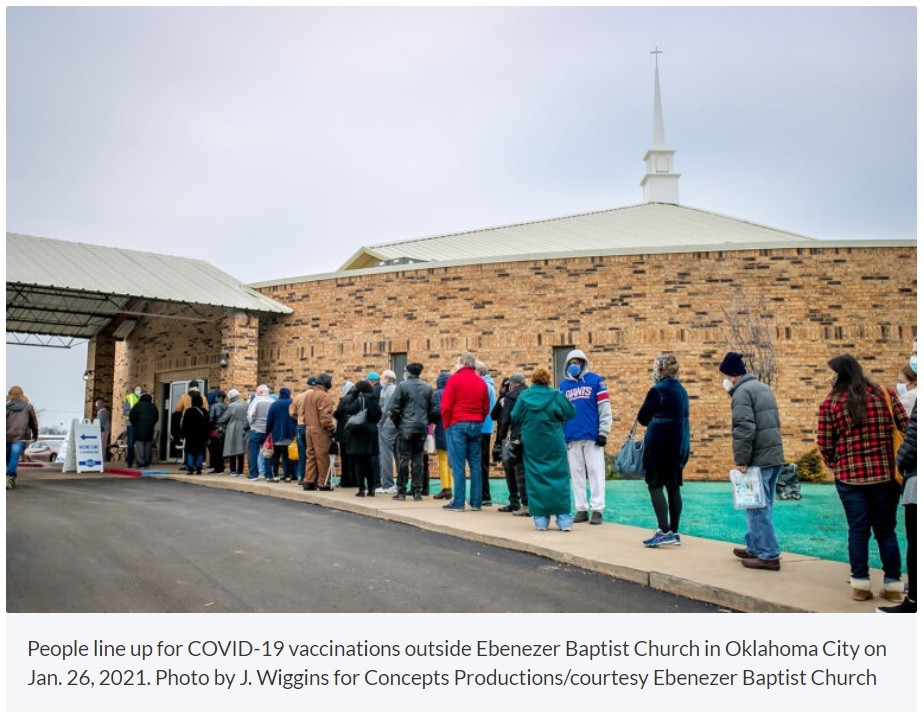
“Black clergy offer churches as COVID-19 vaccination sites, roll up their sleeves”. Source.
So does the Bible ever use the terms “pastor” and “bishop” to refer to a specific leader in the assemblies (churches)?
Yes, one time, in the letter of Peter:
For you were like sheep going astray, but now you have returned to the Shepherd (poimēn) and Overseer (episkopē) of your souls. (1 Peter 2:25)
Be shepherds (poimēn) of God’s flock that is under your care, serving as overseers (episkopē)–not because you must, but because you are willing, as God wants you to be; not greedy for money, but eager to serve; not lording it over those entrusted to you, but being examples to the flock.
And when the Chief Shepherd (poimēn) appears, you will receive the crown of glory that will never fade away. (1 Peter 5:2-4)
I rest my case.
We have only one Head, one Pastor, one Bishop, one Priest, and one Lord, and his name is Jesus Christ. All others are impostors and false prophets.
Therefore, since we have a great high priest who has gone through the heavens, Jesus the Son of God, let us hold firmly to the faith we profess.
For we do not have a high priest who is unable to sympathize with our weaknesses, but we have one who has been tempted in every way, just as we are–yet was without sin.
Let us then approach the throne of grace with confidence, so that we may receive mercy and find grace to help us in our time of need. (Hebrews 4:14-16)
Related:




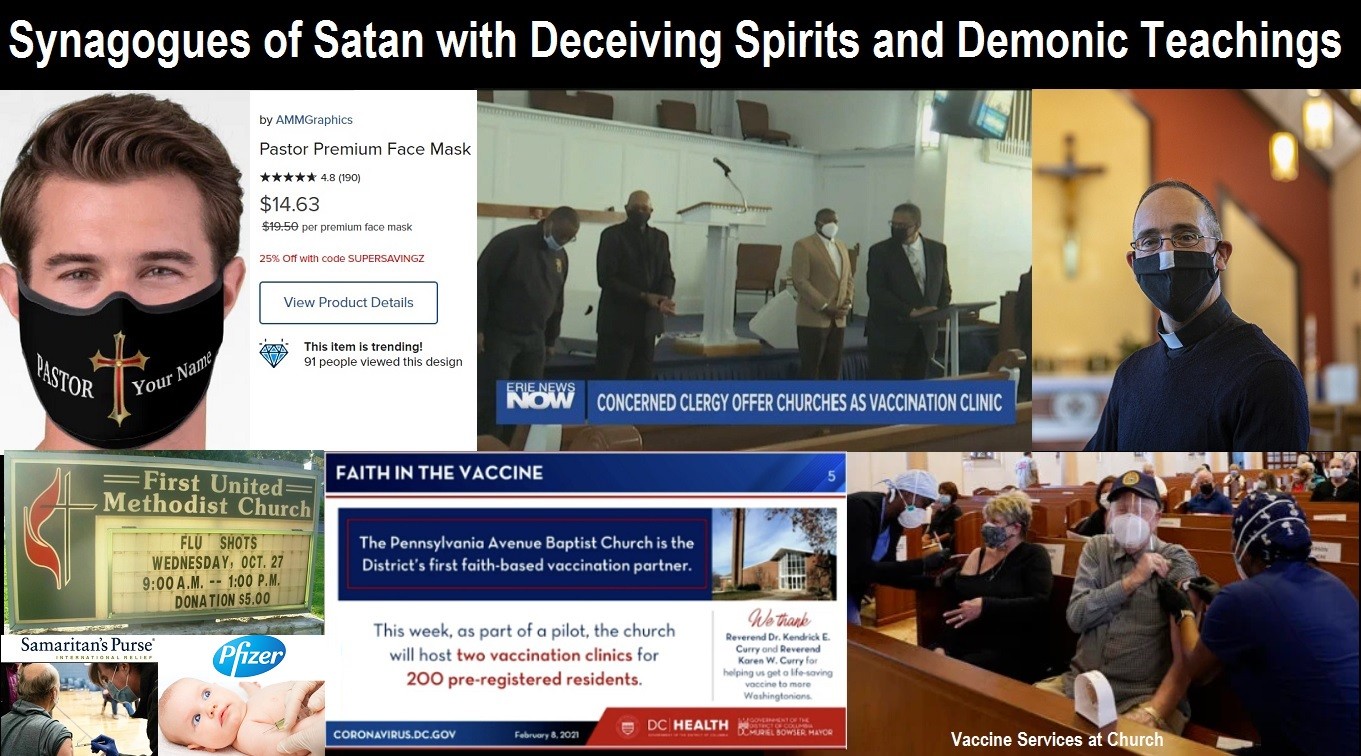

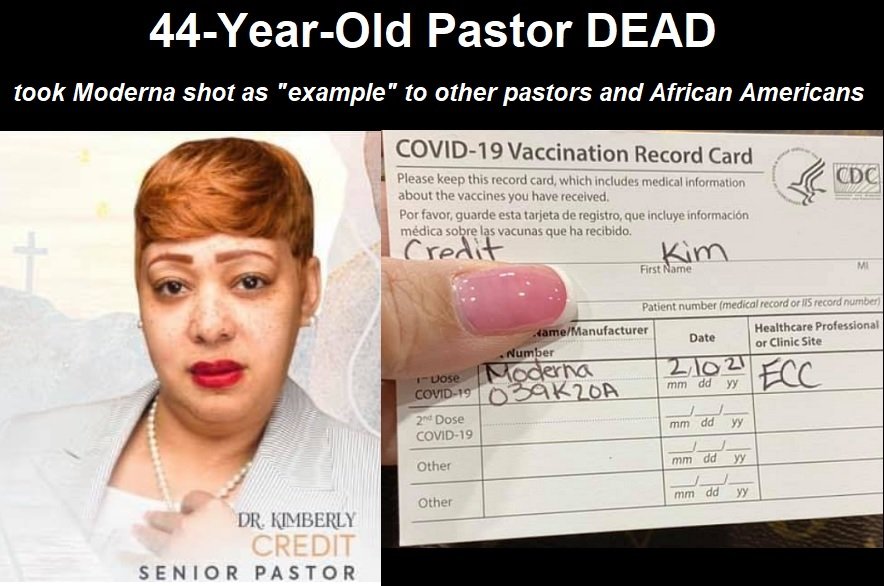
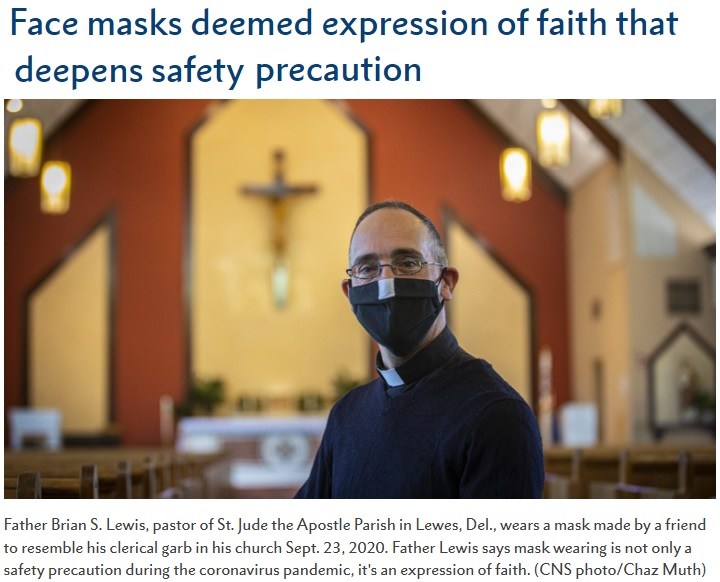
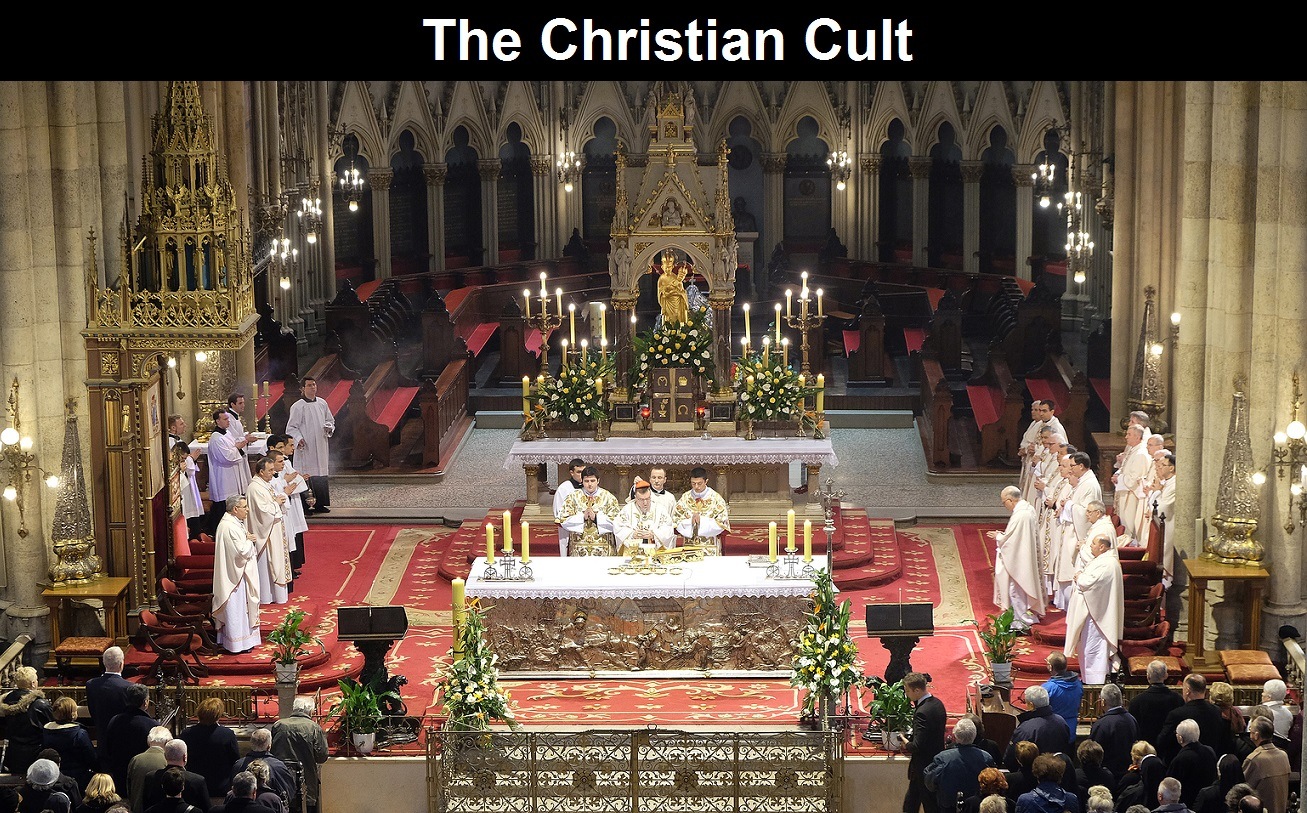
11 Comments